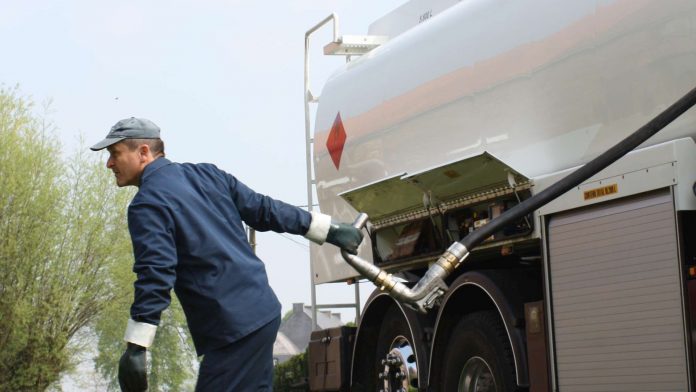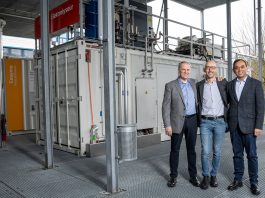Sandrine Devos, Secretary General at Eurofuel, discusses the importance of renewable liquid fuels and the important issues to be tackled in order to maintain a sustainable supply.
For Europeans, the energy situation has rarely looked more challenging than it does now. The uncertainty caused by the current political situation has triggered an era of severe supply shortages and dramatic price rises for most energy users. This comes on top of an already difficult situation, as the world’s economy began to emerge from the COVID-19 pandemic.
These difficulties are further compounded by the need to achieve dramatic reductions in carbon emissions during the coming decades. For European citizens and policymakers alike, this represents both a challenge and an opportunity, impacting all aspects of society. To be successful, it is more important than ever that we secure energy sources that are affordable, reliable and, ideally, low carbon. To do this, Europe needs to diversify its energy use and embrace all the existing solutions. Pragmatic choices must be made and, just as electrification is important for both heating and mobility, liquid fuels will also have a major role to play in both sectors.
Learning from past policy mistakes
Hindsight shows that previous policies have not always worked in the best interests of European citizens, who have often paid the price for poor decisions. They have been encouraged to switch their cars from petrol to diesel and now electric; their heating from coal to oil and gas and now renewables; only to realise years later, after significant personal investments, that their energy was getting more expensive, and was not as climate-friendly as they thought. In the current economic climate, it is important that we avoid further policy mistakes and instead give back choice to consumers, and, with it, the ability to select what is best for each individual’s needs. Heating is not a luxury, it is a basic human need that has to be accessible to all.
Finding the right solution
Heat pumps and district heating, which are the preferred options for policymakers, are excellent solutions. However, they are expensive and not suited to every situation, while the full electrification of buildings and transport poses complex challenges for the electricity network, generation, and supply management. Other solutions for those specific situations exist and these should be actively supported.
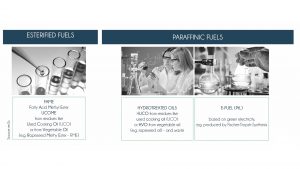
Consumers are keen to decarbonise, but they must be able to choose the right solution for their particular circumstances. The solution will be different depending on where they live, the type of building they live or work in, and what they can afford. For decades, liquid fuels have been a popular heating choice, particularly in rural areas. Renewable liquid fuels, potentially in combination with other types of energy (hybrid systems), will make perfect sense for many Europeans.
Fossil-free liquid fuels
Liquid fuels can and will be fossil free. They offer a drop-in solution, which is easy to deploy in existing liquid fuel heating systems, whether as blends or 100%. The conversion process is straightforward, and this ease of adoption makes them attractive to consumers. Their inherent flexibility offers an excellent alternative choice when other options are less suitable, enabling rapid progress to be made with decarbonisation.
Regardless of their feedstock or manufacturing process, renewable liquid fuels should always be sustainable, and legislation, such as the Renewable Energy Directive, is there to ensure this is the case.
Ensuring a sustainable supply of renewable liquid fuels
How this is achieved can vary, depending sometimes on local conditions. This is the case in France, where F30 (up to 30% FAME – Fatty Acid Methyl Ester) is being marketed to decrease CO2 emissions. The feedstock is rapeseed oil – a local resource grown in France. It is a plant available in sufficient quantity, which does not compete with food production. By producing oil from rapeseed, vegetable protein is also produced, which makes it possible to feed livestock and reduces the use of soybean imports in particular.
Low electricity prices are of great importance for the economic production of e-fuels. The focus here is on areas in sunny regions and regions with strong winds. A secure supply also requires geopolitical stability in the producing countries. Large investments are required to produce renewable fuels at scale. These will only be made by the companies concerned if a basis for the future marketing of these products is created. However, some of these lighthouse projects have already been started.
FAME and hydrotreated vegetable oil (HVO) are already available and volumes are increasing. In the coming years, assuming there is policy framework for investments, e-fuels will offer a compelling further option. Their availability depends largely on the policy framework. It also depends on prices. Current energy prices show that there is a real business case to invest in alternative technologies and energies and investing in innovation will drive the costs down.
Low-carbon and renewable liquid fuels are often prioritised by policymakers for ‘hard-to-abate’ sectors where electrification is hardly an option, for example aviation. In the EU, 20 million homes rely on liquid fuels for heating, with most of these homes located in rural, off-gas-grid areas, where no other affordable alternatives are available, due to technical, economic, or social reasons. Those buildings, heated on liquid fuels, are the hard-to-abate part of the building sector, in the sense that their electrification is difficult, expensive, or even impossible. Let’s ensure the right, enabling framework for those homes to decarbonise their heating with liquid fuels.
With a clear, stable policy framework, liquid fuels producers are ready to make the change!
Liquid fuels have many benefits which are crucial to the energy challenges we are facing:
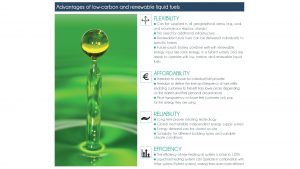
Liquid fuels are an easy way to decarbonise heating quickly in a way that is fairer and offers greater choice for the end user.
What are we waiting for?
We need acceptance. Not from the consumers, who are ready. Not from the producers, who rely on the market. Not from the sector, which is committed to play its full role in the decarbonisation of heating. We need the acceptance from decision-makers and the right policy framework. For example, in the Energy Performance of Buildings Directive (EPBD), we need an approach which is truly technology open. This means no technology bans, and a wider definition of ‘renewables’ which can be produced off-site.
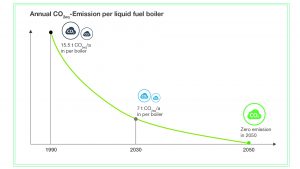
In the Renewable Energy Directive (RED), in addition to the technology approach mentioned above, bioliquids need to be fully acknowledged. The target of 49% renewables in the energy used in buildings by 2030 is biased with a narrow definition of ‘renewables’. Bioliquids should be accounted for in the efforts towards achieving the target.
Additionally, financial incentives to help support the transition to renewable liquid fuels should be reflected in different legislations, as is partially the case in the proposed revised Energy Taxation Directive (ETD), with a reduced rate for the low carbon and/or renewable part.
Liquid fuels are a key element of a diversified and independent energy mix, much needed in Europe. Liquid fuels do not need to be fossil.

Sandrine Devos
Secretary General
Eurofuel
https://www.eurofuel.eu/
https://www.linkedin.com/company/eurofuel/?originalSubdomain=fr
Please note, this article will also appear in the thirteenth edition of our quarterly publication.

